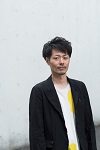- Home
- What we do
- Support Programs
- Project Support
- Arts and Culture Hub Formation Support P...
- FY2018 APAF - Asian Performing Arts Foru...
Originally launched in 2002 as the Asian Performing Arts Festival, APAF (now the Asian Performing Arts Forum) is a creative talent development program which became a part of the Tokyo Festival 2017. APAF seeks to promote mutual understanding and cultural exchange through Asia’s performing arts; pursue new creative forms and higher standards in the performing arts through mutual exchange among artists; discover outstanding talent and works; and contribute to the promotion of arts and culture in Asia. In 2018, Junnosuke Tada took over from Satoshi Miyagi, who had been the program’s producer for 10 years, to become APAF’s new director.
On becoming director of APAF, the Asian Performing Arts Forum
I’ve taken up the baton from my predecessor Satoshi Miyagi to become the director of the Asian Performing Arts Forum, APAF. Recently I’ve been thinking about how communities and artists’ localities are preserved, even in the case of my own work in Asia. In international creative collaborations, there’s a tendency to look for shared characteristics and greatest common divisors. People also talk about “Asian values” as if there are commonalities throughout the region. But within Asia (if it’s possible to tie it all together with one word), the different histories and cultures, and the climates and topographies that have influenced them, are incredibly diverse. In north, south, east, west, central and southeast Asia there are a total of 48 countries and, needless to say, different languages, religions and cultures within each country. These diverse localities co-existing in diverse ways–that’s what Asia is. It seems to me that if there is such a thing as Asian values, they are this enduring diversity and the fact of co-existing without rejecting what is different. To me, these are not just values, but the Asian value that we should strive for.
APAF’s name in Japanese translates roughly as “Asian performing arts creator development program.” As this suggests, APAF’s role is to nurture the talent of creators working actively in Asia. As I see it, this applies even more to local creators working in their own communities than to activities in various locations throughout Asia. International collaborative programs are opportunities for creators, especially those in the younger generation, to try out their artistic approaches outside their own community or country. At the same time, however, they are processes in which creators look squarely at their own locality. While leaving one’s home is a valuable experience, I think it is important to value the light that shines into one’s home when it’s opened up to the outside. And I expect that, as they hold on to their strong locality, these creators will eventually bring rich and profound perspectives on humanity from various parts of Asia to the entire world.
The 2018 program plan is similar to that of previous years, with a structure comprised of three programs: the workshop and workshop wrap-up, creation from last year’s workshop, and the art camp. In the workshop and creation components, instead of attempting to infuse and be infused with differing values and methodologies, we will aim for the co-existence of localities and for cooperation that preserves differences; and we will work to enhance the art camp as a platform from which to explore the sharing and exchange of locality, as well as original ideas for and application of action plans. In our future outlook, we will set our sights on coordination between programs and with other sections of the Tokyo Festival, and aim to develop programs in which participants can discover a wider range of possibilities in activities carried out in their own communities.
In addition, our open call for participants from Japan, instead of being limited to performers, will expand to include producers and other areas. We’re looking forward to the participation of a wide range of people from various regions in Japan. We will also strive to provide audiences in Japan with diverse perspectives on Japan’s localities, Asia, and the world. Please stay tuned! I intend to do my utmost so that APAF can continue to be a platform for Japan’s contributions to the world and hand the baton over to the next generation. I will be grateful for your support.
 (C) 平岩亨
(C) 平岩亨
Director of APAF, Junnosuke Tada
Born 1976. Director. Presides over Tokyo Deathlock. Artistic Director of Cultural Centre of Fujimi City. Personally active in staging all kinds of works from classics to contemporary drama, dance, and director of a public theater department appointed in Japanese history. Artistic Director of Takamatsu performance works. Advocates “local contacts, Japanese base”—is active in developing and running regional artistic programs with theaters and artists across Japan, promoting creativity and running workshops with people who are not theater specialists, and broadly communicating theater’s power of dialogue and collaboration. Also involved in many overseas co-productions, particularly with Korea and Southeast Asia. Tokyo Deathlock, over which Tada presides, has suspended Tokyo performances since 2009. Although Deathlock made a return performance in Tokyo in 2013, it is now suspended again until the end of the 2020 Tokyo Olympic Games. Received the 50th The Dong-A Theater Award in Korea in 2014—the first foreign winner. Appointed Artistic Director of Cultural Centre of Fujimi City in 2010—the youngest artistic City. Part-time lecturer at Shikoku Gakuin University. Senior Fellow Artist at the Saison Foundation.